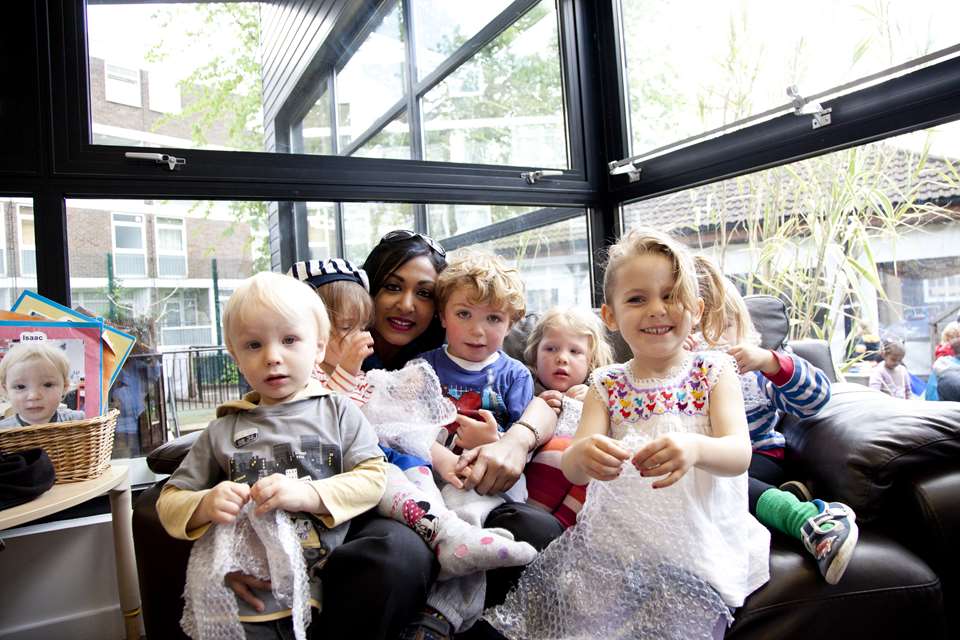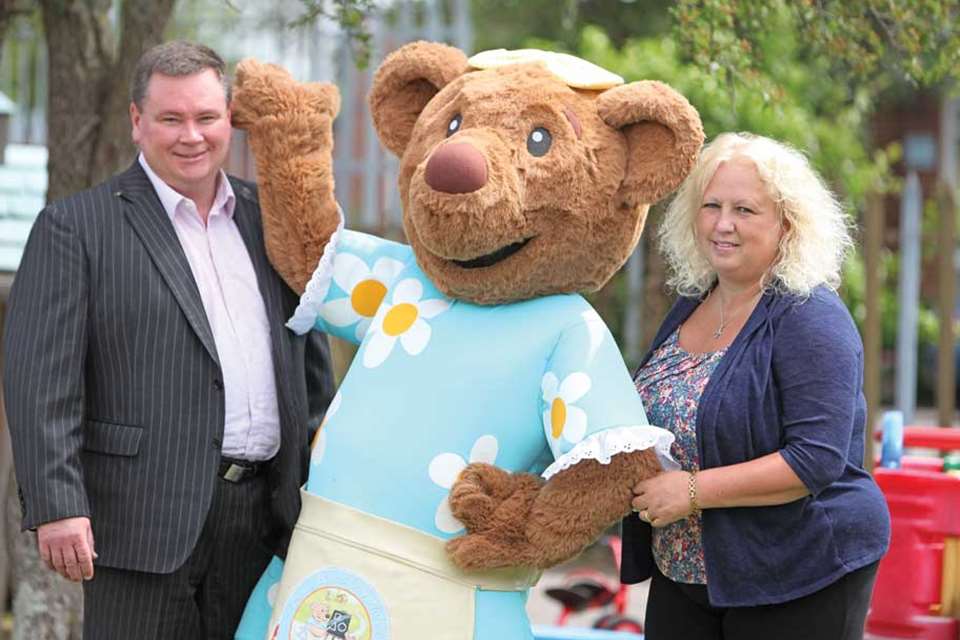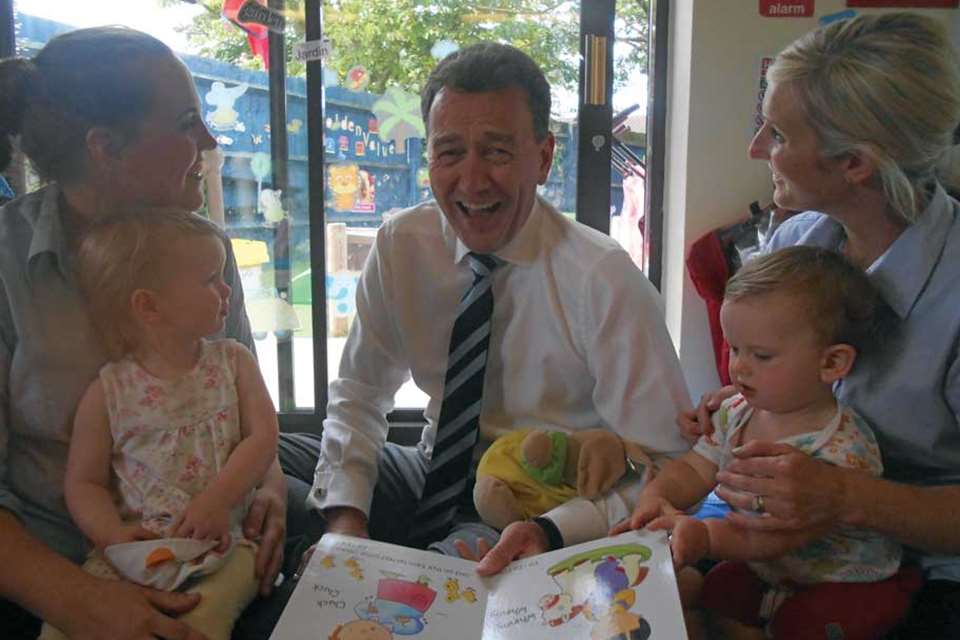Business Models Part 5: Voluntary Sector - Charitable status
Monday, January 26, 2015
Charities are commonly managed by unpaid trustees and have the freedom to fundraise. But this can be both a blessing and a curse, as Hannah Crown reports.

Being a charity feels good,' says Jane Robinson, manager of Tree House Children's Centre, an 'outstanding' setting in Lincolnshire. Despite being able to take a maximum number of 58 children, Ms Robinson opts not to have more than about 30 at once. 'You don't have to cram them in because we're not after a profit. Our baby room has six children and two adults, though we could have double that number. It's quality of life for everybody. I have worked in very busy nurseries and everybody gets so stressed out.'
About a third of nurseries in England are run by unpaid committees, so Ms Robinson's setting is not alone. Aside from the quality-of-life argument, there are financial benefits: tax reliefs include no corporation tax paid on profits made from trading in the course of delivering charitable aims, 80 per cent mandatory relief from business rates, and Gift Aid on cash donations. Many sources of grant funding are only available to organisations with charitable status.
A charity is a legal entity, with the Charities Act 2006 decreeing that to be so-called an organisation must have exclusively charitable purposes. These include the prevention or relief of poverty, advancement of education and advancement of community development. In addition, these aims must be demonstrated to be 'for the public benefit'. Assets can never be used for non-public benefit.
Types of charity
Historically, many charities were unincorporated organisations. The Pre-School Learning Alliance, which publishes guidance on the different charity structures on its website, advises against this structure as it 'leaves the trustees and members, who are usually parents for childcare providers, personally liable for any costs that the charity is unable to meet.'
In 2013, the Government created a new form of charity: charitable incorporated organisation (CIO). According to the alliance, CIO status 'is likely to be preferred by most providers, as it does not require regulation by Companies House in addition to the Charity Commission'.
Another option is the charitable company. Charities' ability to trade is legally restricted, so they often set up a separate company for this, which must also follow the law as laid down in the Companies Act. Trustees are registered as the directors of the company at Companies House and both the Charity Commission and Companies House are overseers. The alliance recommends that the form is 'suitable for larger organisations, with high staff levels, major contracts or significant property holdings'.
Tree House follows this form, along with the alliance - while the latter is a membership organisation, it is also the largest voluntary provider of childcare in England, with 119 nurseries and 24 children's centres. All its owned or managed settings operate under one single charity number and one trustee board. Trustees, with senior management, decide top-level issues such as pay and conditions.
The alliance gains nurseries not by buying them but because it is asked to tender for existing nurseries by local authorities or other voluntary organisations. Anne Vine, the alliance's children's services director, says one of the aims is to work in areas of deprivation, based on need, where commercial settings wouldn't be viable. As a result, some settings are forced to operate on free entitlement funding only. But even with this ethos there is a business case to consider. 'A local authority might say, "We would like you to tender for this", but sometimes we just can't. We have to be business focused - settings have to be sustainable in their own right,' she says.
Fundraising
Having a specialism is a good way of attracting funding. The Puzzle Centre, based in Buckingham, supports up to 22 children and their families per week in its specialist nursery for children with autism or similar communication disorders. Its founder, Alexandra Stanyer, has helped create a set of early years autism standards for the Autism Education Trust.
The centre specialises in early intervention, including 1:1 support sessions for children, home visits, liaison with staff in mainstream settings, and courses for parents. It also employs a number of specialist teachers, occupational therapists and speech and language experts. Though most children will receive council funding - often not at the start of their placement - this does not cover the full cost of their place. The charity also commits to a minimum of two sessions per week per child, which it can fund if necessary. All of this, Ms Stanyer says, makes it an expensive business to run. The fundraising target is £250,000 per year.
Ms Stanyer began the business as a sole trader. The process of converting to a charity (initially an unincorporated trust) was undertaken by a group of 'committed parents' in 2004, and it was later upgraded to a charitable company. She said, 'We wanted to be able to offer our services to any family and child that needed them. One session of 2.5 hours costs us £154. We didn't want to be charging parents £150 per session.'
Now, 'life is fundraising' she says. The charity currently works with up to seven local authorities as well as grant-giving trusts and other fundraising organisations, always has several applications on the go and also hires a part-time consultant fundraiser.
'All our children have got quite significant special needs so there are sometimes several sources of funding. You have to be steely and determined and get an expert in funding to tell you what to apply for. There is no point in applying willy nilly.'
Added pressures come with grant-givers becoming more exacting in their requirements. Ms Stanyer adds, 'You've got to have more and more evidence and data. We get tremendous feedback from parents and we have a pretty good database. But it is not like putting children through GCSEs - we're talking about small steps. It's hard to make it sexy.'
For Gingerbread Pre-School, a 28-place CIO founded in 2013, fundraising is a contractual requirement for staff. The setting is based in a deprived area near Clacton-on-Sea and gets much of its core funding under the two-, three and four-year-old offer. However, a quarter of its intake is special educational needs and disabilities children, which brings extra council funding for specialised resources. Last year the pre-school and its supporters raised £3,000, much through holding events, while according to manager Dawn Peal-Shankar, church volunteers might also 'pop in and do the washing up for ten minutes'.
Staff contracts state a requirement to 'fundraise, promote the nursery and be a good ambassador' and those deemed to have succeeded each year are awarded a bonus (last year all six staff achieved this). Ms Peal-Shankar says the setting has also started to investigate local and national grant-giving bodies and she has also spoken to a fundraising expert. She says, 'I tell my staff that the council money is like the cake money and fundraising is cherries and icing on top.'
Being a charity can also mean preferential treatment. Tree House gets free use of its premises from a charitable education trust, which means there is little pressure for fundraising. Ms Robinson says, 'We have a large field and don't have large outgoings. Occasionally we've received grants for things like inclusion, but we don't need equipment as we do natural play and you can't often get grants to pay staff higher wages. Also, I don't want to put parents under pressure. Parents struggle anyway a lot of the time without feeling like they have to sponsor this or that.'
The trustees
According to the Government, the willingness of volunteers to give their time for free is 'an important principle (which) helps to sustain trust and confidence in charities.' At Puzzle, there are seven trustees, a mixture of parents, and professionals with experience in areas such as business, fundraising and surveying. Their role includes carrying out themed monitoring visits to look at Ofsted-sensitive issues such as safeguarding.
Ms Stanyer says that decision-making by committee is 'not a problem', but there is an optimum number - 'I think up to eight or nine would be fine but I wouldn't want to go beyond that.'
At Gingerbread, the six trustees include a vicar, supermarket manager and early years primary teacher, all recruited by Ms Peal-Shankar. Another, the director of a bank, sits in on interviews. The committee meets three times a year, but has also made provision in constitution to have virtual meetings and make resolutions over email.
Ms Peal-Shankar says finding the right group of people is key, 'I worked in a previous setting which was committee-run and you had to ask whether you could buy a paperclip, but the current committee are quite happy to leave me to get on with it.' The trustees are also offered all staff CPD training.
Ms Robinson opted for charity status 'purely for the trustees'. She says, 'I thought it would be worthwhile if I got backup from knowledgeable people. I have had parents on a committee before and they are not always the most objective. A lot of committee-run settings have mums and it is not particularly useful. My trust comes every six weeks and keeps track of finances, gets involved in interviews and if there are staff issues my HR expert helps me get it all correct - I feel it helps me be more professional.'








